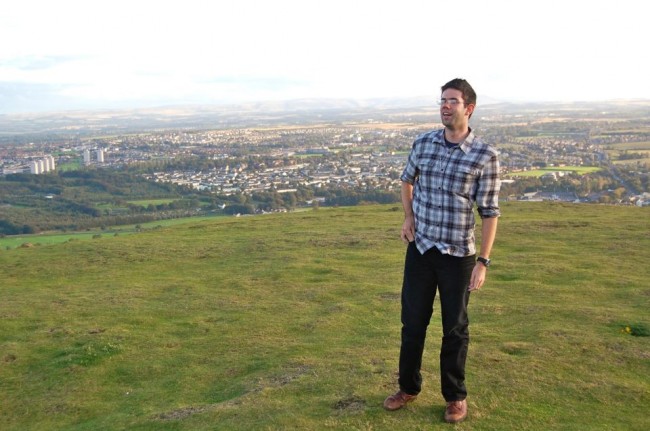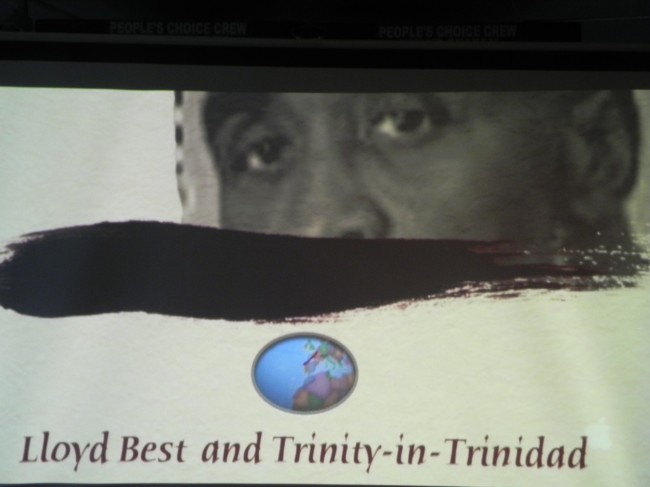Home » Special Opportunities » Study-Abroad
Category Archives: Study-Abroad
History Course To Visit Significant World War II Locations In Japan
By Brendan W. Clark ’21

Editor; History Major
The Trinity College History Department is offering a new course that will provide students with the opportunity to visit key sites of significant military action during World War II. Associate Professor of History and Department Chair Jeffrey Bayliss will teach the course, and Associate Professor of History Michael Lestz will join the visits, which include stops in Tokyo, Okinawa, and Hiroshima this June.
These sites, added Bayliss, each have significance to the military history of World War II and the experiences of Japanese and American soldiers. Bayliss added that “because the Japanese have memorialized the war in various ways, we can get into questions of historical and political memory” during the course.
A Conversation with Professor of History, Emeritus, Borden Painter
By Brendan W. Clark ’21
Editor; History Major

Professor Borden W. Painter, Jr. ’58, H’95, is an alumnus of Trinity and a former Professor of History, interim Dean of the Faculty, and twice interim President of Trinity College.
Painter’s time at Trinity as a student included participating in football and swimming as well as majoring in history. Painter characterized the importance of “good, close relationships” with the faculty while at Trinity as a major asset to the college. Painter was also active in the Chapel and felt that, ultimately, Trinity was a “great choice” for his undergraduate studies.
Study Away: Studying History at Irkutsk State University
By: Dylan Hebert (History ’17)

Studying abroad in Irkutsk, a small industrial city in Eastern Siberia, one of my greatest and most rewarding challenges, was taking a mainstream history class with Russian students at Irkutsk State University (ISU). While everyone has different objectives when they study abroad, for those who want to get as much as they can out of the experience, I wholeheartedly recommend that they take a regular class from their host university. Studying abroad through the Middlebury International Language Program, I had taken history and other subjects in Russian with ISU professors before, but my other classmates were also English speaking Americans from the Middlebury program. Taking a mainstream Russian history class with ISU students was much more intimidating.
(more…)
Guten Tag, Wein! Studying Abroad in Vienna
Written by: Callie Prince (History, Class of 2017)
I was in High School when I decided that I wanted to study abroad. I had just returned from a Holocaust Study Tour, a trip that still inspires me today when I knew I had to travel again when I finally got to college. I wanted to climb to the top of the Acropolis, to walk around the Colosseum, and to even take a picture on the garden in front of the Eifel Tower. It was not until I arrived in Vienna International Airport, however, with my life fit into three bags, that I suddenly realized I had not thought about what it would be like to really live in Vienna for five months. I had taken the biggest leap of my life and that I didn’t even know how to say leap in German. I had chosen Vienna for my study abroad because of its culture, the size of the Trinity program and the history of the city. I had pictured myself sitting at cafés with international friends discussing art, culture, and politics. I planned to travel every weekend if I could, believing that constantly moving would really make the experience worthwhile. Yet, I had not predicted how much getting to know Vienna would be the best adventure from the classroom to the city.
(more…)
Studying History in Cape Town, South Africa
Written by: Chelsey Crabbe (History, Class of 2017)
I never thought that I could come to love a place as much as Cape Town, South Africa. Having arrived back home over a year ago, the memories I made in South Africa are still fresh in my mind. I spent the fall semester of 2015 participating in the Trinity-in-Cape Town program with eight other Trinity students. In terms of my academic experience, I attended the University of Cape Town, a school beautifully set into a mountain face, a setting that would greatly juxtapose the political turmoil boiling on campus. The #FeesMustFall campaign became the movement at school as the university’s students began protesting the rising student fees that barred a number of individuals from attending school. Their efforts are still at the heart of the greater goal of decolonizing the school system and continue today. Coming from Trinity, I had never seen mass student protests before especially with my own eyes. I became entranced by the students’ active political participation, a symbol of their deep value of education. As a history major, I realized that history was occurring before my very eyes, a strong reminder that Apartheid still remained a key component of the nation’s collective memory.
(more…)
Mussolini’s Battle For The Roman Past: The Ancient Redesigned

By Duncan F. Grimm (History major, class of 2015)
Welcome to Rome, the Eternal City of many layers and rich history. Despite ages of construction and destruction the city today appears ingeniously planned. A lesser known, or discouraged fact, is that Mussolini and his vision for Rome created this city we experience today. On Thursday, November 1, Professor Borden W. Painter, Jr. (Trinity College ’58) enlightened an audience at the Center for Urban and Global Studies of Mussolini’s Rome, and how the self-proclaimed Marshal of Empire changed the city’s urban landscape. In the 1920s and 1930s his dream of creating a new Imperial Rome completely redesigned the city that we enjoy today. “Mussolini fought many battles,” Painter said, and “he identified chiefly with Augustus.” From 1922 to 1943 Italy was a fascist state; understandably, immediately after the Second World War there was an immediate backlash against all things fascist. In the 1970s and 1980s however, individuals began to adopt a more eclectic view of Il Duce’s Rome–it may be possible to have some good come out of a bad regime.
(more…)
Photos: History Majors Abroad: Michael McLean in Cape Town, South Africa

Michael McLean is a junior majoring in History with a minor in African Studies. He is currently studying abroad in Cape Town, South. Here are some photos from his trip so far:
(more…)
Photographs from Convois & Trinity-in-Trinidad Site Visit
“I returned to Trinidad 10 years or so after my first visit, now with a renewed commitment to engaging the country’s rich history in the context of my research on race and ethnicity in the Caribbean and Central America, and also in the context of deepening ties to the History Department at the University of the West Indies. The latter is important, not only for my research, mostly in Spanish, but because that academic venue, in English, can provide future research opportunities for our students in the English-speaking Caribbean. Few countries in the Caribbean are as apt for studying the African Diaspora in the Americas, for example, than Trinidad & Tobago.” — Prof. Euraque
(more…)
History Professors Attend Historic Conference in Trinidad & Tobago
By: Prof. Markle (History/International Studies)
From March 18th to March 25th, a delegation of Trinity College faculty members traveled to Trinidad and Tobago to attend and participate in the Lloyd Best Institute of the West Indies’ THE COMMON SENSE CONVOIS: RE-AWAKENING THE CARIBBEAN SPIRIT. History professors Dario Euraque and Seth Markle were part of this delegation which also included Milla Riggio (English), Pablo Delano (Studio Arts) and Kifah Hanna (Language and Cultural Studies) as well as undergraduate senior Antonea Ascione (Political Science/English). Since the early 2000s, Trinity College has been partnering and collaborating with the Lloyd Best Institute — named after the renowned Trinidadian economist who died in 2007 — in giving our undergraduate students an incredibly enriching active learning and cultural immersion study away experience.
(more…)
American Historian Abroad

By: Daniel Morgan (Class of 2013)
As an American studying abroad, the two most frequent questions I received over my regrettably brief stint in Edinburgh were, firstly, why I had decided to travel some thirty two hundred miles just to study history; and secondly, why someone born and raised in the States would be so interested in medieval history. Before I could even begin to answer these questions, though, I thought that I should first answer why so many people would think to ask me these same two.
It must have seemed baffling from the point of view of a UK citizen studying the humanities, and perhaps many European humanities students in general, to travel so far just to read the same books or listen to similar lecturers/professors expound upon the same subjects. After all, one of the most wonderful features of the humanities in general, and for me history in particular, is that it is concerned with a unified thought world, in which all philosophical partisanship is leveled out in the pursuit of “the truth,” or “meaning.” So, despite a few stylistic differences here and there, how is being taught history in a foreign country any different than studying history in one’s own country?
In this vein, the second question seems almost legitimate – what interest could an American possibly have in a history that is so far outside the realm of his own cultural and or personal experience? I suppose it must have seemed abundantly strange that the United States, lacking its own medieval past, could produce anyone interested in the medieval period at all. Yet a more important part of this question to some was in tacitly asking how an American could even hope to comprehend the true depth of a history not his own.
(more…)


